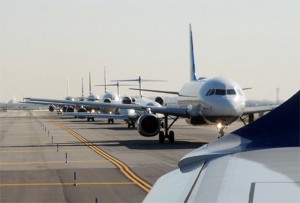
The Canadian Transportation Agency through Marc Garneau, the Transport Minister, last month announced new air travel regulations set to start operating by mid-July 2019 and to become law on 15th December 2019. However, two advocates filed a lawsuit at the Federal Court of Appeal to challenge the new rules.
The new regulations
In a nutshell, the air travel regulations seek to permit airlines to have travelers on the tarmac for three hours. It further allows the airlines, in addition to the three hours, to hold passengers for an extra 45 minutes in the likelihood that it will take off within that period. As a result, the total number of hours an airline will be permitted to keep passengers on the tarmac, without compensation, to more than two times the hours recommended by the Senate committee just the previous year and 90 minutes more than the current rules permits.
The airline is only obliged to provide reasonable quantities of food, drink and proper ventilation and cooling or heating during the three hours 45 minutes delay, and within that period, in case take off is not imminent, the passengers must then embark.
The new rules also narrow down the definition of denial of boarding. By so doing, it limits the incidences that warrant passengers to receive compensation from the airline when denied boarding. To further minimize on airline’s payments, the regulations impose no obligation on airlines to pay customers for delays or cancellation that results from issues categorized as outside of control. It then goes ahead to provide a long list of what is outside of an airlines control.
The advocates hold the view that the new regulations are in sharp contradiction of the tenets of passenger protection as outlined in the Canada Transportation Act, grossly violates the passengers’ charter and is government’s attempts to take away the rights of passengers under the guise of consumer protection legislation.
Discrimination
Even though the new regulation covers denied boarding compensation, compensation for lost or damaged baggage, and tarmac delays. The advocates have narrowed down their points of arguments to the adverse effect of tarmac delays on persons living with a disability. They bring out the elements of discrimination that will result upon implementation of the new rules.
Bob Brown, one of the advocates and a person living with disability as a person with quadriplegia, observed that the new rules would to him mean reduced distance of air travel, unnecessary pain, and suffering and washroom dilemma
Reduced air travel distance
Brown observes that his disability makes him prone to developing pressure sores, getting excessively dehydrated, and experiencing severe pains whenever he exceeds the amount of time he can spend on an airline.
The longer the airline keeps people on the tarmac the shorter the duration and the distance persons with a disability such as his, that limits the amount of time one can spend on an airline, can travel safely and comfortable by air.
He avers that the new regulation if implemented would reduce by 2,000 kilometers the distance he can travel by air without putting his health at risk. This is in sharp contrast with persons living without any disability as they stand to suffer no such travel limitations.
Reduced air travel distance for an advocate like himself directly translates to the loss of immense business opportunities, clients, and income. It also brings about different kinds of inconveniences to persons with varying disability depending on the degree their livelihood is pegged on air travel.
Pain and Suffering
Three hours and 45 minutes on a plane without being allowed to disembark or compensation to a person living with a disability is three hours and 45 minutes of physical and psychological torture without damages
Persons living with a disability requires attention and care that are mostly not provided for by the airline. The more extended the stay at the airline the higher the probability of discomfort, pain and suffering setting in due to the lack of attention and care needed
Therefore, every extra minute an airline spends on the tarmac is directly proportional to the amount of pain and experienced by a person living with disability unlike the small inconvenience and mere discomfort experienced by persons with no disability when such delays happen.
Washroom dilemma
“You just can’t get to the washroom, so you have to dehydrate yourself,” Brown told The Canadian Press from Ottawa.
“A short trip like Toronto to Ottawa, you could handle that, but if you’re sitting out on the tarmac for another three hours and 45 minutes, that becomes another issue — you gotta go, you gotta go.”
From Brown’s statement to persons with disability akin to his, it means with the new rules coming in place; bathroom incidents will be unavoidable. Despite taking steps to prevent such by dehydrating, or despite the distance to one’s destination being so short. The new regulations will infringe on persons living with such disabilities’ dignity and may in the long end affects their level of self-esteem or cause them to shun air travel to their immense disadvantage
The lawsuit
The new air travel rules are as a result of the Montreal-bound Air Transat Jets happenings of 2017. In the incident, the jets were diverted to Ottawa due to the weather situation and held on the tarmac for almost six hours. However, the new regulations even though is a reaction to that incident, does not correctly respond to the unfortunate six-hour tarmac delay, where passengers were not allowed to disembark for the entire duration that happened in 2017.
The two advocates, Bob Brown, a disability rights advocate, and Gabor Lukacs, a passenger rights advocate seek to prevent from happening the above-foreseen inconveniences and resulting discrimination of persons living with disability the new regulation will cause.
Their lawsuit against the Canadian Transportation Agency at the Federal Court of Appeal is on equality rights, which expressly prohibit discrimination based on physical disability and if it succeeds, the new regulations will be dead on arrival.

Leave A Comment